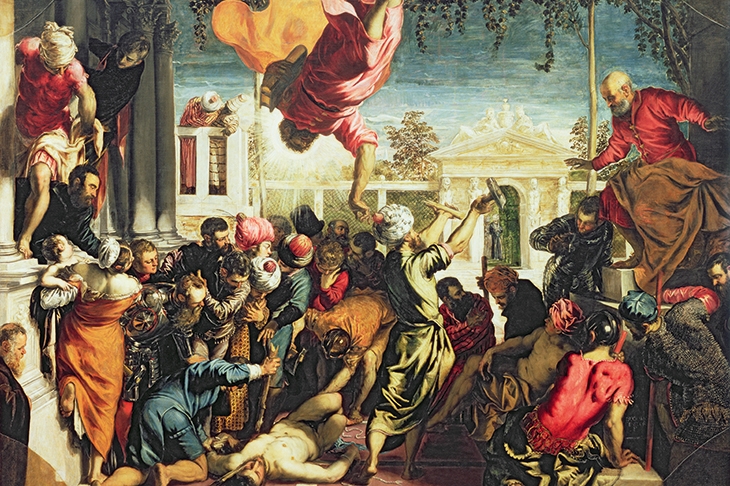Tintoretto was il Furioso. He was a lightning flash or a thunderbolt, a storm in La Serenissima of Renaissance Italy, a maverick and a cheat. One of his friends, a fellow Venetian, likened him to a peppercorn overwhelming ten bunches of poppies. More often than not, those poppies were rival artists. He trampled them like an overgrown child.
Henry James said that ‘if Shakespeare is the greatest of poets, Tintoretto is assuredly the greatest of painters’. He was at least the most aggressive. A series of exhibitions opens in Venice this autumn to mark the 500th anniversary of Tintoretto’s birth. If they show him to be half as devious as his first biographers described him, then it will be all anyone can do to salvage his good name.
So many of his commissions were won by subterfuge and stealth. In 1564, the Scuola Grande di San Rocco, a lay confraternity in Venice, held a competition for an artist to complete a ceiling painting of Saint Roch, the protector against plague. Tintoretto (1518/9–94) was among the painters invited to produce designs for the space. The story goes that every artist placed his sketch before the judges except Tintoretto, who peeled back a covering from the ceiling panel to reveal a finished work instead.
Tintoretto’s painting of the saint being received by God is brilliantly dynamic but, as the members of the confraternity told him, he had no right to have installed it surreptitiously. Tintoretto calmly responded that they were welcome to it, which was less generous than cunning, for they were obliged to accept donations to the scuola. In the end, the majority voted not only to keep the painting, but also to employ Tintoretto to produce several more for the building in exchange for an annuity.








Comments
Join the debate for just £1 a month
Be part of the conversation with other Spectator readers by getting your first three months for £3.
UNLOCK ACCESS Just £1 a monthAlready a subscriber? Log in